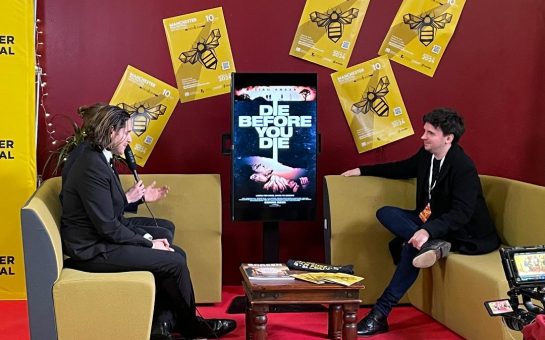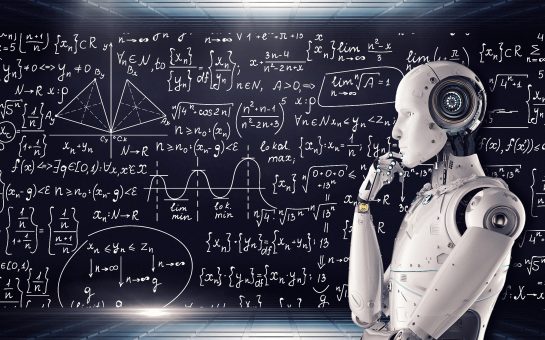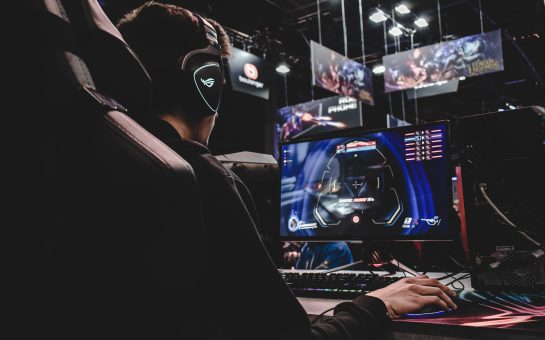As Benedict Cumberbatch’s film The Imitation Game – in which he plays Alan Turing – gets its UK release, MM caught up with a scientist following in the footsteps of the father of artificial intelligence.
Manchester University’s human intelligence specialist Dr Steve Furber is a leading computer scientist. He spoke to MM about his work and comparisons with the controversial British hero.
Turing, who also worked at Manchester University, was part of the team who helped to build the first computer.
The film follows his work on the Enigma machine, an early computer, which led to Britain’s success in the Second World War.
Dr Furber said: “I am on the computer engineering side and the machine building, which Turing was less good at, though he did have a go.”
Alan Turing, who was primarily a mathematician, was recruited by the British Army to work on puzzles to solve the enigma code, a secret military German code.
The study led him to invent the first even computer, and he has been labelled the father of artificial intelligence, which leads us to Dr Furber.
“I am also currently involved in stuff that is linked with Artificial Intelligence and building machines that understand the human brain.”
In the 1980s Dr Furber co-led the team at ARM computers in building the world’s highest volume micro-processor.
Earlier this year they celebrated their 50 billionth processor shipment, and they supply designs to nearly every technology firm.
Dr Furber said: “iPhones have 8 in them, iPads and Samsung phones also, there are seven for every human on the planet, and they are shipping at ten billion a year at the moment.”
“ARM is considered the UK’s most successful technology company now. I am fortunate to be associated with that.”
While at Manchester University, Alan Turing wrote a user guide to Baby, the first computer, which weighed one tonne.
While at the University Dr Furber explained, Turing also studied biology, working on morphogenesis, the biological process that causes an organism to develop its shape.
Dr Furber described Turing’s work: “We all start as a single cell which divides into identical cells but at some point, some cells become brain cells, and some become skin cells and some become gut cells and so on.
“Turing produced some nice mathematical models of why some animals are striped and some have other patterns.”
Turing’s biological background enlightened his work in computers, and is continuing to enlighten Dr Furber’s work on human intelligence.
But his key computing work in Manchester was the Turing Test for Artificial Intelligence, a test which measured whether computers could think for themselves, or not.
Dr Furber said: “He didn’t call it that, that would have been a bit arrogant, he called it the Imitation Game and that, he wrote in Manchester.”
Turing fully expected computers to pass his test by the end of the last century, and while progress is slow, attempts have been made to complete it.
“Just two or three months ago there was a run of the Turing test at the Royal Society in London where one entrant was claimed by some to have passed, but it has become rather controversial,” added Dr Furber.
It was reported that, a Russian scientist passed the test in June this year with a computer which simulates a 13-year-old boy, called Eugene Goostman.
The simulator was mistaken for a human more than 30% of the time during keyboard conversations, adding to the conclusion that the machine could think for itself, consequently passing Turing’s test.
However, critics argue the achievement is exaggerated, because the robot’s use of personality quirks and humour distracts from its non-human tendencies and lack of real intelligence.
Dr Furber said: “I think one of the reasons that artificial intelligence has not advanced at the rate that Turing expected is that we never really stopped to work out what human intelligence is.”
Finally, he told MM how he thinks the film, The Imitation Game, could impact the number of students taking an interest in computer science at Manchester University.
“If it manages to get over some of the fascination that Turing had with mathematical puzzles and breaking the enigma code and so on, that may encourage people.”
The movie, which was released today, looks to focus heavily on Turing’s relationship with fellow scientist Joan Clarke played by Keira Knightley.
“I will be interested to see how technical they make it. It’s a bit difficult to do an Alan Turing story while skirting the technology because [technology] is basically what he did,” added Dr Furber.
“Science fiction is very useful in allowing you to imagine the world and think of some of the roblems which arise which aren’t purely technical.”
Image courtesy of Abrinsky, with thanks.



